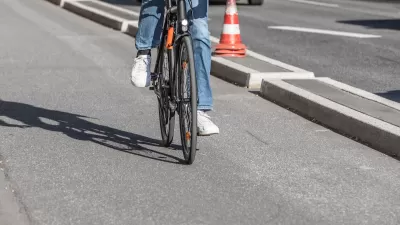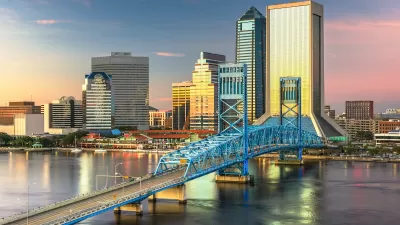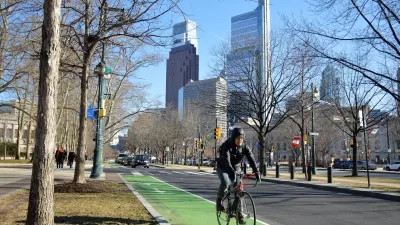Around the United States, traffic deaths are growing or plateauing, yet efforts to make roads safer still face political opposition.

In an article for KFF Health News, Vanessa G. Sánchez outlines the efforts local, state, and federal legislators are making to reduce traffic fatalities, which continue to grow or plateau in most U.S. communities. “In 2022, more than 42,500 people died on American roads, and at least 7,522 pedestrians were fatally struck – the highest tally of pedestrian deaths in more than four decades,” Sánchez points out.
States like New York and Michigan passed laws that allow local jurisdictions to set their own speed limits, letting cities lower speed limits in dangerous areas. “In Los Angeles, voters approved a measure that forces the city to act on its own safety improvement plan, mandating that the car-loving metropolis redesign streets, add bike lanes and protect cyclists, transit riders and pedestrians.
”At the federal level, the Biden administration has directed over $15 billion to road safety efforts and $5 billion in local grants. And while some advocates say the agency didn’t go far enough in reforming its rules, the historically reticent Federal Highway Administration (FHWA) issued new guidance that explicitly calls for pedestrian and cyclist safety measures and, earlier this year, proposed changes to the Highway Safety Improvement Program that would similarly include vulnerable road users in highway safety plans.

Planetizen Federal Action Tracker
A weekly monitor of how Trump’s orders and actions are impacting planners and planning in America.

Maui's Vacation Rental Debate Turns Ugly
Verbal attacks, misinformation campaigns and fistfights plague a high-stakes debate to convert thousands of vacation rentals into long-term housing.

Restaurant Patios Were a Pandemic Win — Why Were They so Hard to Keep?
Social distancing requirements and changes in travel patterns prompted cities to pilot new uses for street and sidewalk space. Then it got complicated.

In California Battle of Housing vs. Environment, Housing Just Won
A new state law significantly limits the power of CEQA, an environmental review law that served as a powerful tool for blocking new development.

Boulder Eliminates Parking Minimums Citywide
Officials estimate the cost of building a single underground parking space at up to $100,000.

Orange County, Florida Adopts Largest US “Sprawl Repair” Code
The ‘Orange Code’ seeks to rectify decades of sprawl-inducing, car-oriented development.
Urban Design for Planners 1: Software Tools
This six-course series explores essential urban design concepts using open source software and equips planners with the tools they need to participate fully in the urban design process.
Planning for Universal Design
Learn the tools for implementing Universal Design in planning regulations.
Heyer Gruel & Associates PA
JM Goldson LLC
Custer County Colorado
City of Camden Redevelopment Agency
City of Astoria
Transportation Research & Education Center (TREC) at Portland State University
Jefferson Parish Government
Camden Redevelopment Agency
City of Claremont





























